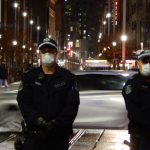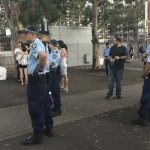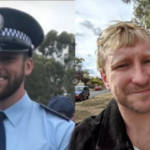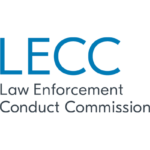Victoria Police Set to Become Less Accountable Than Ever
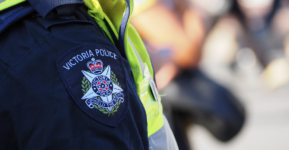
The Police Accountability Project (PAP) in Victoria has had to severely cut its services, due to a lack of funding.
The project has, until recently, been servicing about 400 people a year, but now, due to funding shortfalls and future funding insecurity, is now only taking clients by referra, because it can no longer afford to run its specialist hotline.
The centre relies on federal, state and philanthropic funding.
Keeping police officers accountable
The PAP is a specialist public interest legal project located within a Victorian Community Legal Centre.
It rose to prominence during the Covid pandemic, concerned at the way police were not only enforcing health regulations, often with a great deal of inconsistency, but also excessive force.
Victoria experienced the toughest Covid-19 regulations in Australia and the longest consecutive days in lockdown.
During the pandemic years, the Victorian police went viral on social media and made local and international news headlines several times for their aggressive policing tactics.
Brutality and misconduct
Footage of a Victorian police officer placing a woman in a chokehold for not wearing a mask before pushing her to the ground, leaning on her until a police van arrived on the scene was only one example that sent shock waves through the community.
The footage hit a raw nerve with many across the globe because it was reminiscent of the very police tactics used by former Minneapolis police officer Derek Chauvin as he arrested George Floyd.
George Floyd died because he could not breathe, sparking riots around the globe. In the US, since the death of George Floyd most state police forces have moved swiftly to ban the practice, along with strangleholds, lateral vascular neck restraints and carotid restraints. Derek Chauvin is now serving time in prison, having been found guilty of murder.
Victorian Police Professional Standards Command investigated and cleared the officer of any wrongdoing, and confirmed that the woman who had been placed in a chokehold was exempt from wearing a mask, and therefore was not fined for not wearing one at a time when they were mandated.
It’s almost impossible to forget more horrific footage that emerged during Melbourne’s anti-lockdown protests of a police officer approaching a man from behind and violently throwing him head first to the ground at Flinders Station in the CBD.
Witnesses reported that the man was knocked unconscious, and left in a pool of his own blood and urine.It was an action that had the potential to prove fatal, and at the time, in response to questions about the incident, the Chief Commissioner of Victoria Police, Shane Patton, told media that Victorian Police Officers were by and large “responding proportionately in an environment that was dynamic, threatening and frightening.”
He side-stepped the very obvious issue that the police officer’s actions could have proven fatal.
The victim is now considering his own legal action against Victoria Police.
The rise in civil suits and compensation payouts
And this is typically what tends to occur – unsatisfied with the outcome of police complaints procedures, people take matters into their own hands if they believe they have been victims of police misconduct or mistreatment and take civil action.
The costs of compensation payouts and police legal action in most states are increasing, suggesting that police consider such civil suits a ‘cost of doing business’. The cost of course, is borne by taxpayers, the very people police officers take an oath to serve and protect.
However, civil action is only available to those who have the resources and resilience to follow through – a small proportion of people who find themselves victims of police brutality, corruption or unjust treatment.
Furthermore, time and again, we hear that police officers who have been accused of wrongdoing are rarely held accountable. Many remain on the payroll or are shuffled to other positions within departments while cases make their way through the courts.
While everyone – even police officers who have been filmed by bystanders – is entitled to the presumption of innocence before being proven guilty, the way police complaints are handled is undermining trust in the police force and deepening the growing divide between police and the general community.
An overhaul of the police complaints system is long overdue
The Victorian Government, along with other state and territory governments are under significant pressure to overhaul the way police complaints are handled – to increase resolution times and to improve transparency and independence around the investigations process.
In Victoria, as in most states, including New South Wales, police complaints are investigated internally first, and only escalated in the ‘most serious’ cases to the corruption watchdog, the Independent Broad-based Anti-corruption Commission (IBAC) in Victoria; and the Independent Commission against Corruption (ICAC) in New South Wales.
However, in addition to the problems with the ‘internal investigations’ process, both IBAC and ICAC are known to be under-funded and under-resourced, which means they too can only take on a limited number of cases.
Also in both cases, the independent watchdogs only have the ability to make recommendations based on evidence uncovered during their inquiries. It is then up to the Department of Public Prosecutions to decide whether it is possible and / or appropriate to take further action, including pressing criminal charges – the watchdog organisations themselves have no real ‘teeth’ to ensure police accountability.
Is a Police Ombudsman the answer?
An open letter urging the state government to establish an independent police ombudsman was sent to Victorian premier, Daniel Andrews in recent days. The letter has been signed by about 30 state-based organisations including community legal centres, private legal providers, academics from the University of NSW and Aboriginal service providers.
It specifically requests scrapping the internal investigations process in which police investigate their peers and also that IBAC should be stripped of its current police oversight role, and be replaced by an independent solely focused police ombudsman. B
It also states that any oversight system must be “truly independent, well-resourced, complainant-centred and culturally appropriate, fair, accountable and transparent, able to achieve timely and fair outcomes, and promote systemic change.”
In Victoria, the current model of police oversight is under review, but the state government has yet to make any announcements in relation to reform. It is however, high time that the Victorian Government made some significant changes – the number of stories emerging about brutality, misconduct and corruption, not the least of which is the Lawyer X scandal, which continues to have wide-spread ramifications, seriously undermine the respectability, capability and integrity of the Victorian Police Force.



